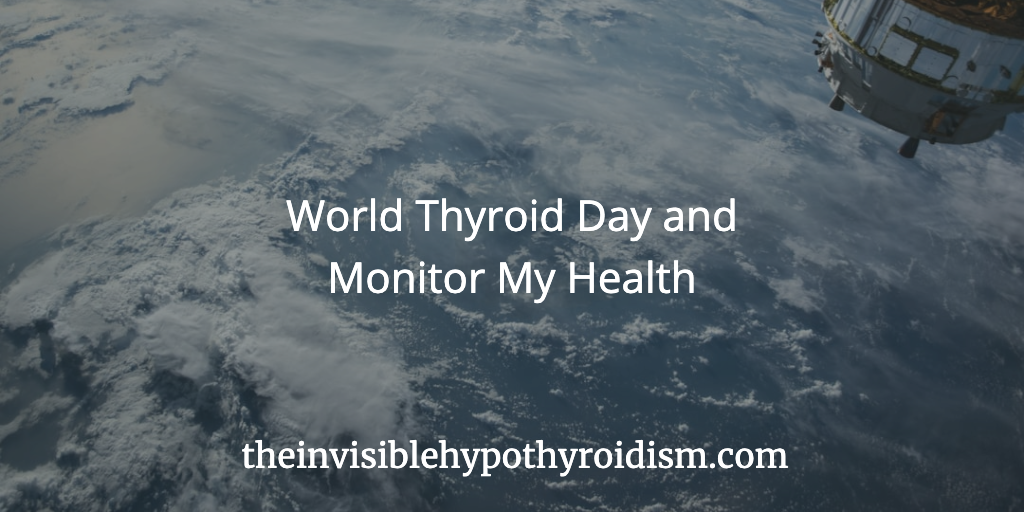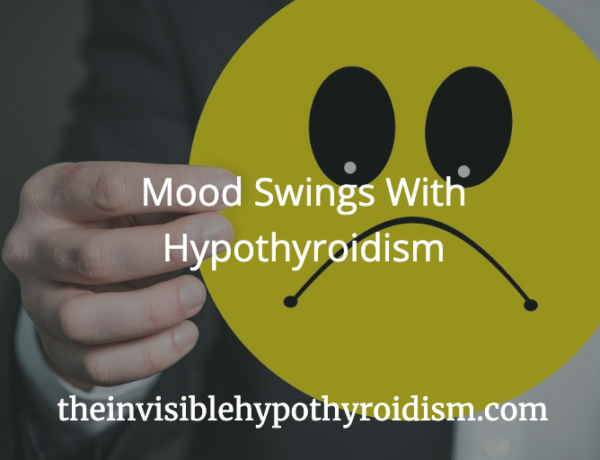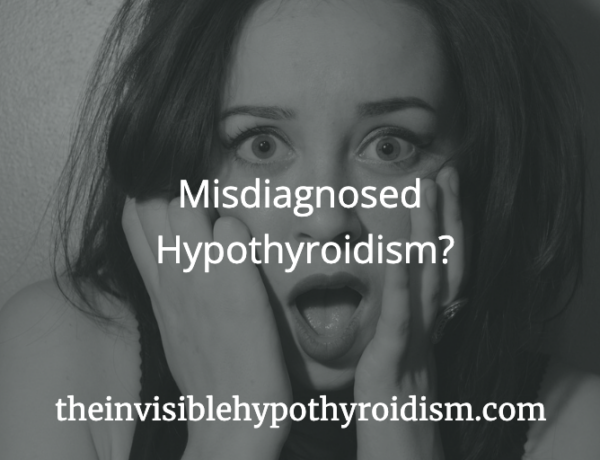This World Thyroid Day post has been sponsored by Monitor My Health online blood tests.
Every year, the 25th May is World Thyroid Day; an international event for raising awareness of what the thyroid gland is, what different thyroid conditions there are and symptoms of them, the importance of diagnosis and treatment, but also the many things that we face as thyroid patients.
The World Health Organization estimates that 750 million people worldwide have some form of thyroid disease, including 1 in 20 people in the UK say the BTF, but as many as 60% are undiagnosed.
Also, around 8 times more women are affected by thyroid disease than men, with key triggers being puberty, pregnancy and the menopause.
Could you or a friend or family member have a thyroid condition?
With these numbers, we have to keep encouraging anyone with symptoms of a thyroid condition to get it checked out via a full thyroid panel (also called a ‘thyroid function test). This includes TSH, Free T3, Free T4, thyroid peroxidase antibodies and thyroglobulin antibodies.
About this post’s sponsor, Monitor My Health:
Monitor My Health is a new NHS Service. They offer a “Thyroid” finger prick home test which checks TSH, Free T3 and Free T4 for £29. They are run by the NHS, use NHS staff and labs and stand apart from other services for this reason. All profits also go back into the NHS. To check out their “Thyroid” home test kit click here.
World Thyroid Day could be the perfect reason to check these important thyroid levels.
What is The Thyroid Gland?
The thyroid gland, located in the neck, is responsible for producing hormones needed for many bodily functions and processes. The main one is metabolic function. When thyroid hormone levels aren’t right, symptoms such as weight fluctuations, sensitivities to heat and cold, fatigue, hair loss, mental health conditions (such as depression and anxiety), dry skin and brittle nails can occur.
Symptoms of a Thyroid Condition
Symptoms for hypothyroidism can include: longterm fatigue, muscle aches and pains, sensitivity to cold, depression, weight gain, sleep disturbances, low libido, dry skin, hair and nails and feeling overall quite unwell.
Symptoms for hyperthyroidism can include anxiety, heart palpitations, unexplained weight loss, hot flushes, irritability and sensitivity to heat.
Symptoms of thyroid cancer may include neck pain, a hoarse voice, nodules/lumps and enlarged lymph nodes.
Symptoms of autoimmune thyroid disease (such as Hashimoto’s or Graves’) can include those mentioned above, including swinging test results and symptoms e.g. going through periods of better and worse health.
Although the thyroid gland is responsible for delivering crucial hormones that are needed for every function and cell of the body, a large percentage of the world’s population don’t tend to understand just how important this little gland is and what signs and symptoms to be looking for. As well as what tests they may need to ask their doctor about. This is why an awareness event can be so useful!
The Importance of Diagnosis and Treatment
When a thyroid condition goes undiagnosed and untreated, many symptoms can persist and mount up. I had over twenty separate symptoms before my hypothyroidism and Hashimoto’s were diagnosed and treated.
There are many people living with the effects of an undiagnosed thyroid condition who could be healthier and happier once treated. When left untreated, symptoms can impact relationships, work lives, quality of life and more.
Why World Thyroid Day is Useful
For those of us already diagnosed with a thyroid condition, we can gain awareness this World Thyroid Day about how to check our necks regularly for any abnormalities, what we can do to live well and which tests to have done.
We can also be aware of what results to look for, as many thyroid patients are still having ongoing symptoms.
I also encourage all thyroid patients to be their own health advocate and be an active participant in their own health and wellbeing. This includes understanding their thyroid condition.
As well as educating those around us on this butterfly-shaped gland, we should also take the time to educate ourselves! After all, knowledge is power and learning to advocate for ourselves gives us the best chance of recovering our health back to a good standard. See a list of thyroid websites here and some books here.
My book “Be Your Own Thyroid Advocate” also compiles all the information you need to begin advocating for your own health, in one place and in an easy to digest format.
World Thyroid Day is all about creating awareness of thyroid disease and disorders as a whole – for those going undiagnosed, those needing a review of their treatment and for those who feel good on their thyroid treatment, but can always learn some more and help spread awareness so that those who aren’t yet diagnosed, can be.
Are you going to help raise awareness this World Thyroid Day? Let me know in the comments below.
You can click on the hyperlinks in the above post to learn more and see references to information given.







